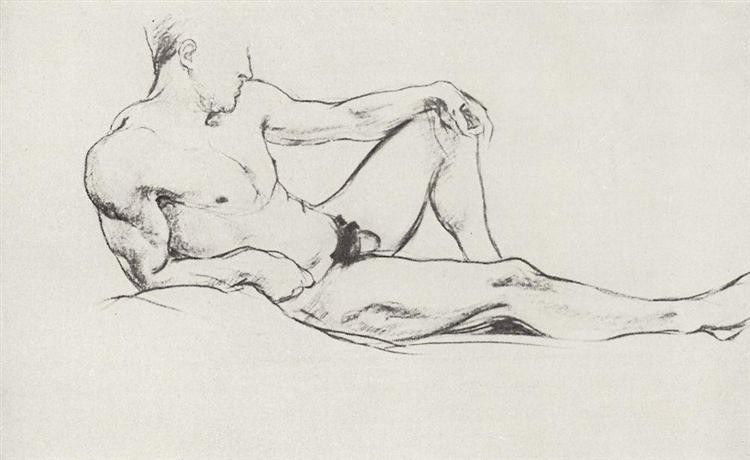Description
The painting "nanny - 1906" by Kuzma Petrov -Vodkin is erected as a palpable testimony of the ability and innovative approach of one of the most intriguing artists of the prerrevolutionary period in Russia. This work sublime the essence of introspection and serenity, encapsulating on its canvas a daily narrative with a depth that transcends the simple observation.
The composition of "nanny - 1906" reflects a mastery in the use of space and human figure. Petrov-Vodkin opts for a central disposition of the female figure, which seems sitting, observing something that is beyond the edge of the painting. There are no distracting elements; The figure stands out against a fund that suggests interiority and intimacy, probably from the home. This simplicity in the composition, far from being mundane, allows the viewer to connect directly to the expression and position of the nanny, created with subtle and elegant lines that transmit calm and reflect a quiet contemplation.
The use of color is another crucial aspect that Petrov-Vodkin handles with skill. They dominate the warm and terrible tones that provide a sense of warmth and foster care. The color palette is not varied, but remains in a restricted range that, however, allows a rich expression of shape and volume. This mastery of color helps the image to evoke a nostalgic and spiritual atmosphere, where time seems to have been stopped, providing the viewer with a moment of pause and reflection.
It is also important to pay attention to the details of the technique used. In "Nanny - 1906", the influence of symbolism is clearly appreciated, a movement that Petrov -Vodkin admired and which he contributed during his career. The soft transitions between the skin tones of the figure and the folds of their clothing denote a careful study of light and shadow, which gives the figure of a tangible realism and an almost palpable presence. It is a clear indicative of the author's interest in capturing not only the external appearance, but also the internal life of his characters.
Kuzma Petrov-Vodkin, born in 1878 in Java (currently in the region of Samara, Russia), was a painter who, throughout his life, moved between different artistic currents, from realism to Symbolism and Russian Russian . His work, although at first it might seem anchored in tradition, shows a constant search for new forms of expression and intensive exploration of the psychological and spiritual aspects of the human being.
An interesting and sometimes less commented aspect about Petrov-Vodkin is its ability to infuse their characters with an inherent dignity and nobility, regardless of their social position or their role in everyday life. In "Nanny - 1906", this characteristic is evident: nanny is not just a service figure; He is a person in himself, with his own emotional depth and meaning. This humanization of the figure is a registered trademark of its style and an achievement that has resonated over the years, positioning it as a compassionate observer and a insightful visual narrator.
In summary, "Nanny - 1906" by Kuzma Petrov -Vodkin is a work that, under an apparent simplicity, hides a world of nuances and meanings. It is a window to the life of a common woman, presented with a humanity and serenity that make everyday life in universal and deeply resonant. This painting not only celebrates simple life but also invites the viewer to stop and reflect on essential human connections that transcend time and place.
KUADROS ©, a famous paint on your wall.
Hand-made oil painting reproductions, with the quality of professional artists and the distinctive seal of KUADROS ©.
Art reproduction service with satisfaction guarantee. If you are not completely satisfied with the replica of your painting, we refund your money 100%.

